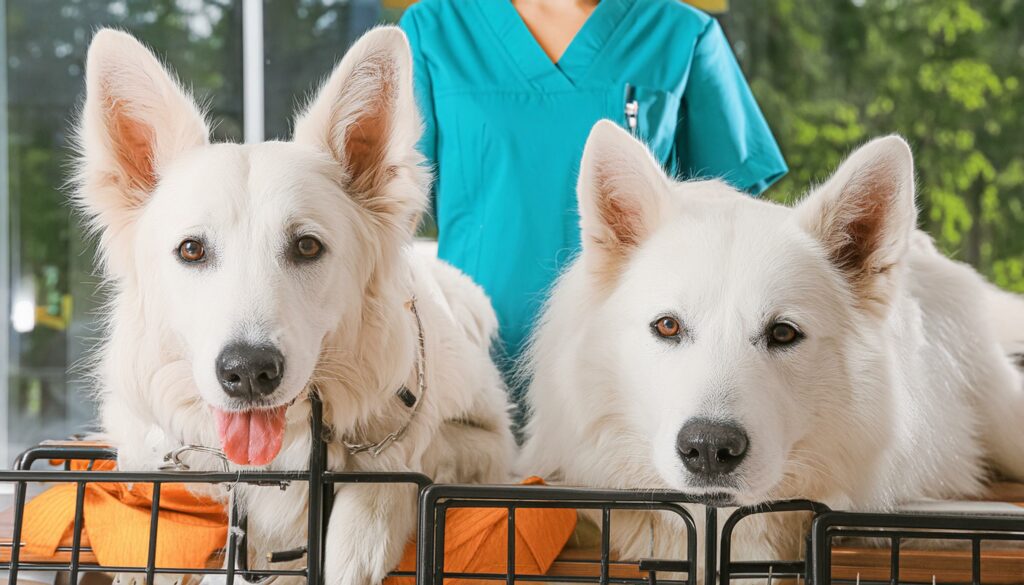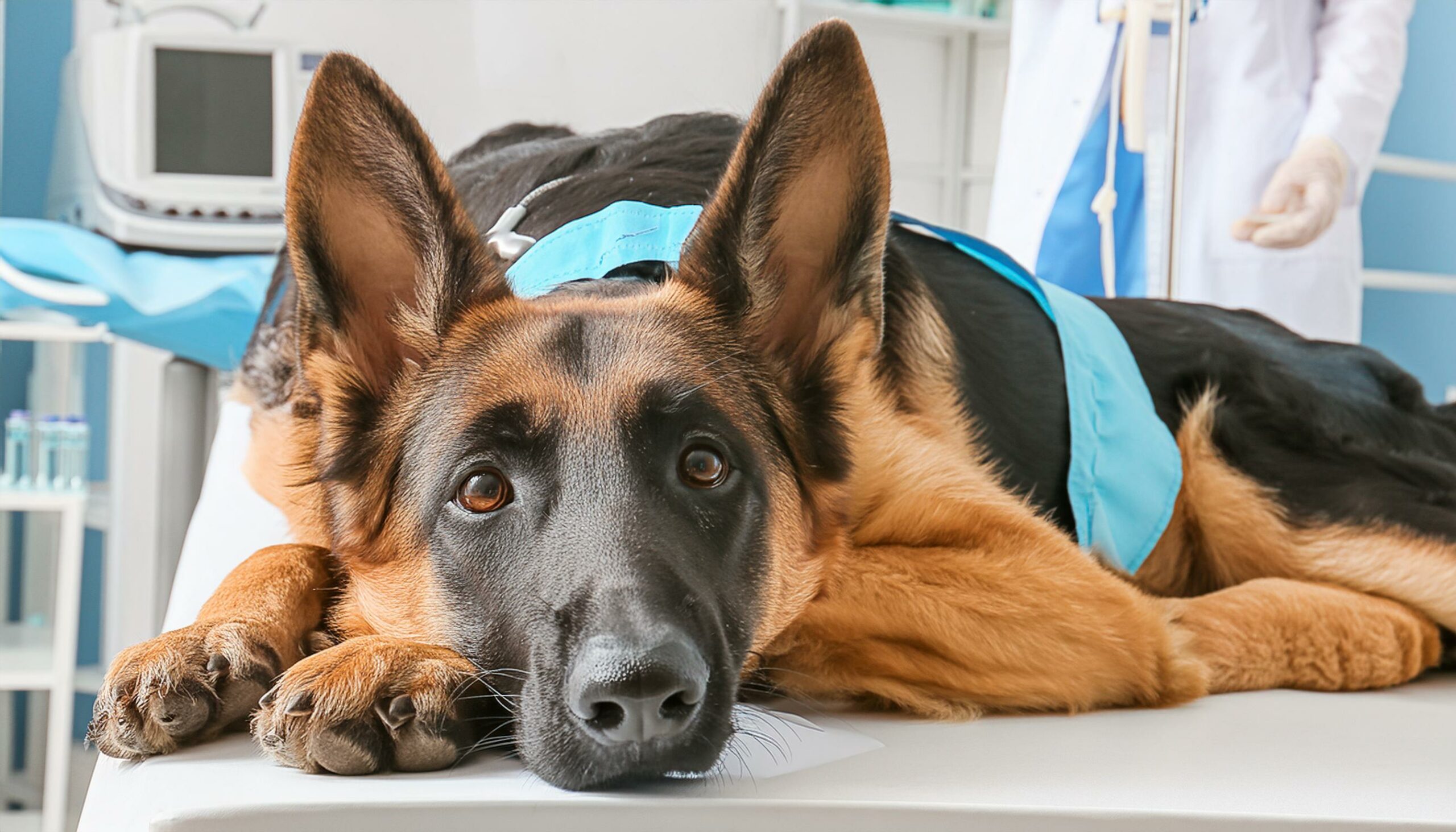German Shepherds, known for their intelligence, loyalty, and versatility, are popular as working dogs and family pets. However, like all animals, they are susceptible to various health concerns, including infectious diseases such as rabies. In this comprehensive guide, we’ll delve into the relationship between German Shepherds and rabies, exploring the risks, symptoms, prevention measures, and vaccination protocols.
Understanding Rabies
Rabies is a viral disease that affects the central nervous system of mammals, including humans and dogs. It is primarily transmitted through the bite of an infected animal, with the rabies virus typically present in the saliva of infected hosts.
Once introduced into the body, the virus travels along nerves to the brain, leading to inflammation and ultimately resulting in severe neurological symptoms. Rabies is considered a zoonotic disease, meaning it can be transmitted from animals to humans.
Symptoms of Rabies in German Shepherds
Identifying rabies in German Shepherds can be challenging, as the disease’s symptoms may vary and mimic those of other health conditions. However, some common signs of rabies in dogs include behavioral changes such as aggression, confusion, and excessive drooling.
Physical symptoms may include difficulty swallowing, paralysis, and seizures. It’s crucial for German Shepherd owners to be vigilant and seek veterinary attention promptly if they notice any unusual behavior or symptoms in their pets.
Rabies Vaccination
Vaccination is the most effective method for preventing rabies in German Shepherds and other pets. Puppies should receive their first rabies vaccine at approximately 12 to 16 weeks of age, followed by booster shots at regular intervals as recommended by veterinarians.
Ensuring that your German Shepherd is up to date on their rabies vaccinations not only protects them from the disease but also contributes to public health efforts to control and eliminate rabies in communities.
Prevention of Rabies in German Shepherds
In addition to vaccination, there are several steps that German Shepherd owners can take to prevent rabies in their pets. Avoiding contact with potentially infected animals, including wildlife such as raccoons, bats, and foxes, is essential.
Keeping German Shepherds on a leash when outdoors and supervising them closely can help prevent encounters with potentially rabid animals. Additionally, securing garbage cans and keeping yards free of debris can deter wildlife from entering residential areas and reduce the risk of exposure to rabies.
Treatment for Rabies

Unfortunately, there is no cure for rabies once clinical symptoms manifest. The disease is almost always fatal once neurological signs appear. However, immediate and thorough wound cleaning following a suspected exposure can help reduce the risk of infection.
If a German Shepherd has been bitten by a potentially rabid animal or is displaying symptoms of rabies, it’s crucial to contact a veterinarian promptly. Veterinarians can provide supportive care and guidance on the appropriate course of action.
Can German Shepherds Contract Rabies?
While German Shepherds can contract rabies, the risk varies depending on factors such as vaccination status, environmental exposure, and geographic location. Cases of rabies in domestic dogs, including German Shepherds, are relatively rare in regions with robust vaccination programs.
However, it’s important for German Shepherd owners to remain vigilant and take precautions to protect their pets from rabies, particularly in areas where the disease is endemic or where wildlife populations are known reservoirs of the virus.
What to Do if a German Shepherd is Suspected of Having Rabies
If there is suspicion that a German Shepherd may have rabies, it’s imperative to take immediate action. Contacting a veterinarian or local animal control authorities for guidance on appropriate next steps is crucial.
Avoid handling the potentially infected animal directly and prevent other pets and people from coming into contact with it to minimize the risk of transmission. Veterinarians can perform tests to confirm a diagnosis of rabies and provide recommendations for treatment and quarantine procedures as necessary.
Myths About Rabies and German Shepherds
There are several myths and misconceptions surrounding rabies and its transmission in German Shepherds. One common myth is that indoor dogs are not at risk of contracting rabies, which is untrue.
Rabies can be transmitted through the bite of an infected animal, regardless of whether a German Shepherd spends time outdoors or indoors. Another misconception is that home remedies or natural treatments can cure rabies, which is false. Rabies is a serious and potentially fatal disease that requires prompt medical attention and vaccination for prevention and treatment.
Conclusion
In conclusion, while German Shepherds can contract rabies, the risk can be mitigated through vaccination, prevention measures, and prompt veterinary care. By staying informed about the symptoms of rabies and taking proactive steps to protect their pets, German Shepherd owners can help ensure the health and well-being of their beloved companions.
Consulting with a veterinarian for personalized recommendations regarding rabies vaccination and prevention strategies is essential for safeguarding German Shepherds against this potentially deadly disease.
FAQs
Can German Shepherds transmit rabies to humans?
While German Shepherds can contract rabies, transmission to humans is rare and typically occurs through the bite of an infected animal.
What should I do if my German Shepherd encounters a potentially rabid animal?
If a German Shepherd encounters a potentially rabid animal, such as a raccoon or bat, remove them from the area immediately and contact a veterinarian or local animal control authorities for guidance.
How often should I vaccinate my German Shepherd against rabies?
Rabies vaccination schedules may vary depending on local regulations and veterinary recommendations. In general, annual booster shots are recommended for German Shepherds to maintain immunity.
Can indoor German Shepherds get rabies?
Yes, indoor German Shepherds can still be at risk of contracting rabies if they encounter an infected animal, such as a bat that has entered the home.
Is there a home remedy for rabies in German Shepherds?
No, there is no home remedy or natural treatment for rabies in German Shepherds. Prompt veterinary care and vaccination are essential for prevention and treatment.
